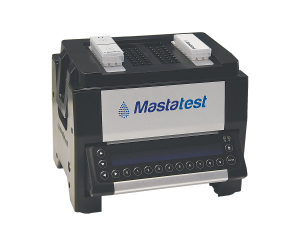With mastitis being a drain on production, resources and animal health any tools that help dairy farmers to quickly detect the problem, particularly that of subclinical cases, will help dairy farmers maintain a healthy bottom line.
Mastatest is a patentprotected solution that is said to provide dairy farmers and vets with easy, accurate, and rapid bovine mastitis diagnoses, produced by Mastaplex, a company founded on the back of initial research carried out at the University of Otago.
Said to simplify the decision on how to treat a mastitis cases, to improve the health of a herd, the system offers automated diagnostics, with results by e-mail within 24 hours, removing the need for the plating of milk samples or the need to interpret culture results.
The system can be used daily for cows with clinical or subclinical mastitis, to provide data informing users of the presence, or absence of bacteria, the type of bacterial species and also helping to identify cows that don’t need antibiotic treatment, so avoiding a milk withholding period.
On the farm, milk from suspect animals is placed in the testing cartridge, before being placed in the Lapbox. The science behind the Mastatest system captures colour change phenomena with an electronic eye. Resultant data is transmitted to the cloud, via the Lapbox, where analytical algorithms take over to interpret the results. Those results are said to help users select of the right antibiotic for each cow, helping to improve cure rates and reduce their time out of the herd.
During the development and testing phase, seven spring calving pastoral dairy herds from the Canterbury and Otago regions of New Zealand were selected from farms serviced by Vetlife New Zealand Ltd. All farms were chosen based on the fact that they had expressed interest in on-farm diagnosis for mastitis, were prepared to follow the study protocol and contributed towards the funding of the project as part of their annual veterinary fee.
Across the seven farms, out of the 6467 cows calving, 608 cows and 648 quarters were diagnosed with clinical mastitis by farm staff. Overall, complete data records were available for 259 quarters in the NS group and 276 quarters in the selective group. These quarters were from 471 cows with a single quarter affected, 29 cows with two quarters affected and two cows with three quarters affected.
A summary of the resultant data found the use of an on-farm diagnostic system to inform therapeutic choice for mild to moderate clinical mastitis reduced the use of antimicrobials by 24% with no evidence detected for a difference in bacteriological cure at 21 days, clinical recurrence within 60 days, ISCC measured 30–35 days before dryoff or days milk withheld from sale.


















